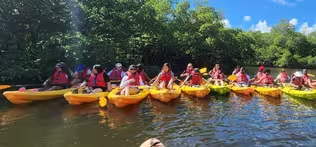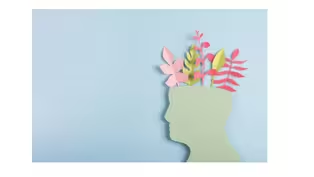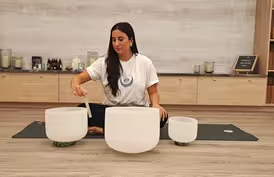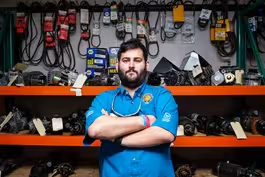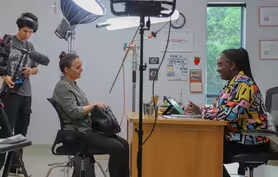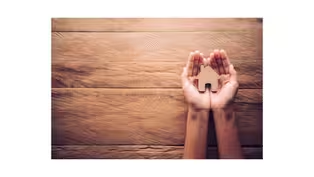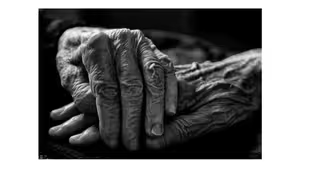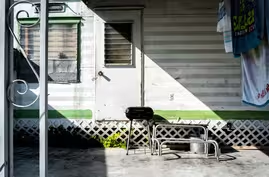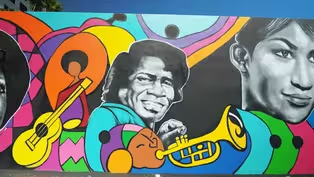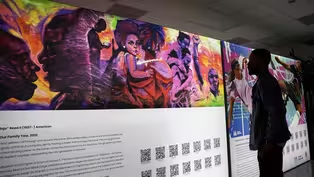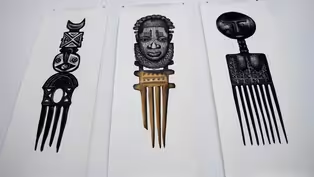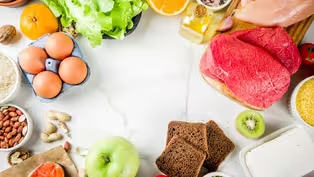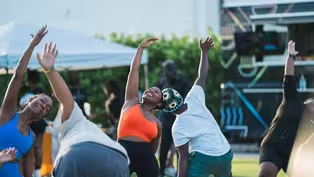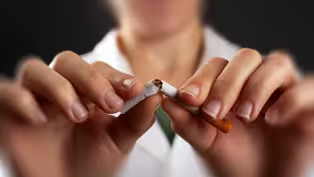Your South Florida
3 Steps to Breaking Habits Through Mindfulness
Clip: Season 9 | 9m 47sVideo has Closed Captions
We explore how mindfulness can play a transformative role in in breaking harmful habits.
In this episode of Your South Florida, we explore how mindfulness can play a transformative role in breaking harmful habits and creating lasting change.
Problems playing video? | Closed Captioning Feedback
Problems playing video? | Closed Captioning Feedback
Your South Florida is a local public television program presented by WPBT
Your South Florida
3 Steps to Breaking Habits Through Mindfulness
Clip: Season 9 | 9m 47sVideo has Closed Captions
In this episode of Your South Florida, we explore how mindfulness can play a transformative role in breaking harmful habits and creating lasting change.
Problems playing video? | Closed Captioning Feedback
How to Watch Your South Florida
Your South Florida is available to stream on pbs.org and the free PBS App, available on iPhone, Apple TV, Android TV, Android smartphones, Amazon Fire TV, Amazon Fire Tablet, Roku, Samsung Smart TV, and Vizio.
Providing Support for PBS.org
Learn Moreabout PBS online sponsorshipFirst, we're talking about how mindfulness can play a crucial role in changing habits, especially those that may not serve us well.
By becoming more aware of our thoughts and actions, we can create space for healthier choices and sustainable change.
Joining me now to share more on that is Mary Beth Stern, a Qualified Habit Change Facilitator and mindfulness trainer with Mindshift Recovery.
I'm so excited to talk to you today.
Thank you, it's a, it's a pleasure to be here with you.
Thank you for being here.
One of our first questions is, focuses on people hoping to overcome a challenge and what you do is you help them do that through mindfulness and awareness.
Tell us a little bit more about that.
So I teach a class at the Mindfulness and Health Institute, and I'm sharing this, and I love the title and it's called The Science and Practice of Habit Change and the title just says so much because what's new in mindfulness is the science, right?
The practice of mindfulness have been around really for thousands of years and in, in recovery and other things for pain, et cetera, for about 50, but what's new is the neuroscience.
So I should say that I have been collaborating and training with Dr. Judd Brewer for about, about 10 years now.
And he's the authority.
And it's his work, yes, and it's his work.
He's a psychiatrist and a, an addiction psychiatrist.
MD, PHD, so very qualified and his passion is neuroscience.
I'd like to think of mindfulness as, as simply awareness.
It's being aware and I would say if people are watching this show, they're already a little aware that there's some kind of habit that's not serving them well, right?
So awareness is important, mindfulness is important because without that, we're simply on autopilot.
We're running from pillar to post and not paying attention to too much at all, so awareness is vitally important and this simple program of habit change is basically kind of really simple.
It doesn't mean it's easy, but it's a three step program and awareness plays a part in each of those steps.
Habit loops is something you talk about and involves those three steps you just mentioned.
How can someone identify that they need this, that something doesn't serve them well, and what is this process?
[Mary] Yes, so habit loops, we think of habit loops of having three components, a trigger, or something that activates us, a behavior, or response to the realization on being activated, and a reward.
So the brain changes habits based on rewardbased learning, which has really been around for a long time.
We used to call it operant conditioning, but so how we change behaviors is bringing awareness to, I wanna say at the outset, the least important part is the trigger, 'cause we can get so caught up in that.
I wonder why I'm so pissed off today.
I wonder why I'm just in this sad funk or whatever it is.
So the trigger is the least important of process of this, of these three steps, but knowing what I'm doing in response to the realization that I'm in a funk today, I, sometimes we don't even know why.
We just wake up and we're, we're in, feeling rage, we're feeling loneliness, we're feeling sadness, frustration.
So I just, sometimes I can identify it.
I have a meeting with the boss.
Easily, easily identified.
Sometimes it's free floating, so what's important is what am I doing once I realize that I'm activated or triggered?
Am I going for the second glass of wine?
Am I going to the fridge for the HaagenDazs?
Am I engaging in, we often understand what behavioral habits are, right?
We go for, just gonna have a couple beers to take the edge off.
Before we know it, it's a six pack and then maybe another.
Gonna go for the ice cream, gonna, but there are behavioral, excuse me, mental, mental patterns of behavior too.
So when we're stressed, we go into a certain habitual way of thinking, this will never change.
I'm never gonna, I'm never gonna get out of this and before we know it, we're at the worst case ever.
So awareness is, is knowing that I'm triggered and what am I doing in response to this.
So second gear is what am I getting from that behavior?
So we're really inviting you, almost counterintuitively, we're inviting folks to really be with the behavior as they're engaging in it.
So in the beginning, you know, we wanna have a change, we wanna change this, that New Year's resolution, right?
I'm gonna lose that 15 pounds by February and then what happens, right?
It doesn't work because that's not the way brains learn new behaviors.
[Arlene] Right.
They learn new behaviors by pay, paying attention to the activity that you're engaging in, even if it's the mental habit loops of what if, oh no, or if it's that second six pack or the vape that you're trying to change.
So many things that we're trying, that we try to change.
Before we can change them, we have to become aware and we almost have to get to know them a little bit.
Befriended is sometimes a word I use.
Right.
Befriended because it's in getting to know it, not here, not knowing it.
If this worked, there would be nobody using tobacco anymore, via vaping or smoking or whatever, right?
Because we all know by now that tobacco is not healthy.
This part of the brain, which is the ancient part of the brain, the survival brain.
So if we think of back when we were on the savanna as cave people, we had a few tasks and most of them, the things we needed to do to survive were pleasurable, right?
We needed to eat, we needed to drink, we needed to reproduce, we needed to ensure that we weren't the food source for another species, right?
So back, so we still have this part of the brain, it's the oldest and strongest part of the brain and when we pay attention, really pay attention to the habit we're trying to, to change, feel into it.
How does it feel?
How does it feel that next day after a night of partying and you missed your kid's soccer game?
How does it feel, that taste of the cigarette, 'cause feeling is gonna activate this part, which always wants to move toward what feels good and it wants to avoid what feels dangerous.
And there's a portion that ties into all this, which is meditation and you do have some practices where, like we mentioned before when we were chatting earlier, we don't have to go to Tibet or be among somewhere.
No.
You know, it can be something simple.
Thankfully.
Sitting here even, you have a way and and a system to help folks.
Yes, yes.
So on our app that's, that we have developed, Mindshift Recovery app, there are practices, there are lessons.
So we have to involve this part of the brain.
This is still important.
We need to understand some concepts, but we also, we, we learn those concepts in the service of wisdom.
So the wisdom part comes when we get to know something in, in the bones, in, in our bones, as opposed to know it conceptually.
The practices help train and teach mindfulness, mindfulness practice and simple way of thinking is, I'm getting out of my head and into my body.
So it might just be awareness of the breath, it might just be little guidance to say, feel into your feet right now.
The app was originally targeting people struggling with substance use and what we've discovered was there are a lot of people working with habits.
So in some ways, we all have habits that are not serving us well anymore.
So it's really now become targeted toward substance users, but anyone with a habit that's not serving them well.
So we can, it really what we've discovered is it takes away the stigma.
It takes away the stigma, so people who might not seek help feel like they're just humans.
We, we're all just humans.
Whether we deal with stress differently, whether it's using, using substances or engaging in the worry thoughts.
So the app is a Mindshift Recovery app and it's available on your app store, it's free.
I should say that Mindshift Recovery is a notforprofit, started by Dr.
Brewer recently and we've been around a little over a year now to really serve people that might not have the resources to get help and we have a, a weekly meeting on Thursdays from 12 to one online and that's a basically a virtual meeting of people that have used the mindfulness approach, Mindshift app and Mindshift methodology to deal with whatever they're working with.
Whether it's substance use, or worry, or various other things that people turn to, to feel better.
So easing suffering.
What a great tool, and hopefully as you said, someone can actually go ahead and delete the app one day once they're ready.
Yes, yes and I don't wanna take credit for that.
That was, that was Judd Brewer himself.
He said, "I've created the app designed to be deleted."
So what that's saying, it's referring to that these skills that we're teaching, they're innate.
We're, we're just kind of knocking on the door reminding them that hey, you know how to pay attention, you know how to feel into the body and we're providing a safe haven to do that, whether it's in a group or individual counseling, or it's a safe way to ease suffering and eventually, and it doesn't take a lifetime.
I wanna just encourage people, it really doesn't.
You'll integrate this way and this will become the new way of being, the habit that does serve you well.
Mary Beth Stern, thank you so much for being here today.
Thank you.
Stronger Together: Helping Families Prepare for Storms
Video has Closed Captions
Clip: S9 | 6m 49s | Broward Cares is a disaster relief partnership that is helping families during and after storms. (6m 49s)
Inspiring the Next Generation of Climate Leaders at MODS
Video has Closed Captions
Clip: S9 | 8m 12s | Young people are discovering their power to protect the planet. (8m 12s)
Designing for a Changing Climate at FAU CES
Video has Closed Captions
Clip: S9 | 11m 44s | Researchers and designers at FAU are building resilience through nature. (11m 44s)
Overcoming Mental Health Challenges for Women in Midlife
Video has Closed Captions
Clip: S9 | 10m 20s | Arlene Borenstein sits down with 2 mental health leaders to discuss helping women navigate midlife. (10m 20s)
Low Cost Mental Health Support for All Ages at Faulk Center
Video has Closed Captions
Clip: S9 | 9m 33s | Mental health challenges can affect anyone. (9m 33s)
Free College Mental Wellness Support from Beyond Grey
Video has Closed Captions
Clip: S9 | 7m 10s | Many college-aged young adults struggle to access mental health support. (7m 10s)
Teaching Every Child to Swim and Protecting Those Most at Risk
Video has Closed Captions
Clip: S9 | 7m 4s | Children with autism are 160 times more likely to drown than their neurotypical peers. (7m 4s)
How The de Moya Foundation Helps Young Adults with Special Abilities Thrive
Video has Closed Captions
Clip: S9 | 11m 58s | 85% of autistic adults are unemployed or underemployed, often due to limited workplace support. (11m 58s)
How Theater Helps Young Adults on the Spectrum Find Their Voice
Video has Closed Captions
Clip: S9 | 7m 6s | For many people on the spectrum, the arts can be a powerful outlet for communication and creativity. (7m 6s)
Why South Florida Seniors Are Struggling to Keep Their Homes
Clip: S9 | 10m 32s | Rising condo fees, unexpected assessments, and stricter building regulations are impacting seniors. (10m 32s)
How 211 Broward is Helping Seniors in Crisis
Clip: S9 | 8m 52s | South Florida seniors are struggling with housing, food, healthcare and social isolation. (8m 52s)
The Disappearing Mobile Home Parks of South Florida
Clip: S9 | 7m 41s | Once a staple of affordable housing, mobile home parks in South Florida are rapidly disappearing. (7m 41s)
Street Art Revolution: Transforming West Palm Beach with Black History & Culture
Video has Closed Captions
Clip: S9 | 5m 57s | In West Palm Beach, Black history isn’t just celebrated in February—it’s honored year-round. (5m 57s)
Miami MoCAAD: Bringing Black History to Life Through Art & Technology
Video has Closed Captions
Clip: S9 | 9m 37s | In this segment, we explore Miami MoCAAD’s latest exhibit—a powerful multimedia experience. (9m 37s)
Anthony Burks Sr: A Passion for Art, Culture & Community
Video has Closed Captions
Clip: S9 | 9m 28s | Florida-based artist Anthony Burks has been creating art his whole life. (9m 28s)
Mindful Eating Made Simple: Hearty Lentil & Vegetable Stew Recipe
Video has Closed Captions
Clip: S9 | 9m 29s | Living a mindful and balanced life includes cultivating a healthy relationship with food. (9m 29s)
Meet the Black Yogis Creating Safe Spaces for Wellness & Unity
Video has Closed Captions
Clip: S9 | 8m 27s | Yoga is a transformative practice but access to inclusive, welcoming spaces remains a challenge. (8m 27s)
3 Steps to Breaking Habits Through Mindfulness
Video has Closed Captions
Clip: S9 | 9m 47s | We explore how mindfulness can play a transformative role in in breaking harmful habits. (9m 47s)
Providing Support for PBS.org
Learn Moreabout PBS online sponsorshipSupport for PBS provided by:
Your South Florida is a local public television program presented by WPBT

